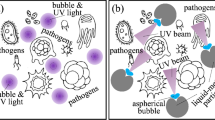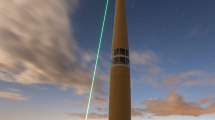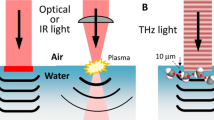Abstract
THE detonation of high explosives in water can be photographed with an open camera and a flash light as the explosive gases do not emit light. The method has been used1 to investigate the spread of shock waves and explosive gases, and to investigate the initiation by shock waves2. We have found that it can be used also in certain gases such as butane and propane. The method is not suitable, on the other hand, for explosives with two levels of detonation velocity in the case of low velocity. A great part of the reaction then occurs after the reaction zone has passed and the expanding explosive gases are very luminous even in water.
This is a preview of subscription content, access via your institution
Access options
Subscribe to this journal
Receive 51 print issues and online access
$199.00 per year
only $3.90 per issue
Buy this article
- Purchase on Springer Link
- Instant access to full article PDF
Prices may be subject to local taxes which are calculated during checkout
Similar content being viewed by others
References
Eldridge, J. E., Fye, P. M., and Spitzer, R. W., OSRD, 6246 (1946).
Winning, C. H., C.R. Twenty-seventh Cong. Int. Chimie Indust., Bruxelles (1954); Proc. Roy. Soc., A, 246, 288 (1958).
Author information
Authors and Affiliations
Rights and permissions
About this article
Cite this article
JOHANSSON, C., STERNHOFF, L. Suppressed Light Emission of the Reaction Zone in Detonation. Nature 183, 247–248 (1959). https://doi.org/10.1038/183247b0
Issue Date:
DOI: https://doi.org/10.1038/183247b0
This article is cited by
Comments
By submitting a comment you agree to abide by our Terms and Community Guidelines. If you find something abusive or that does not comply with our terms or guidelines please flag it as inappropriate.



